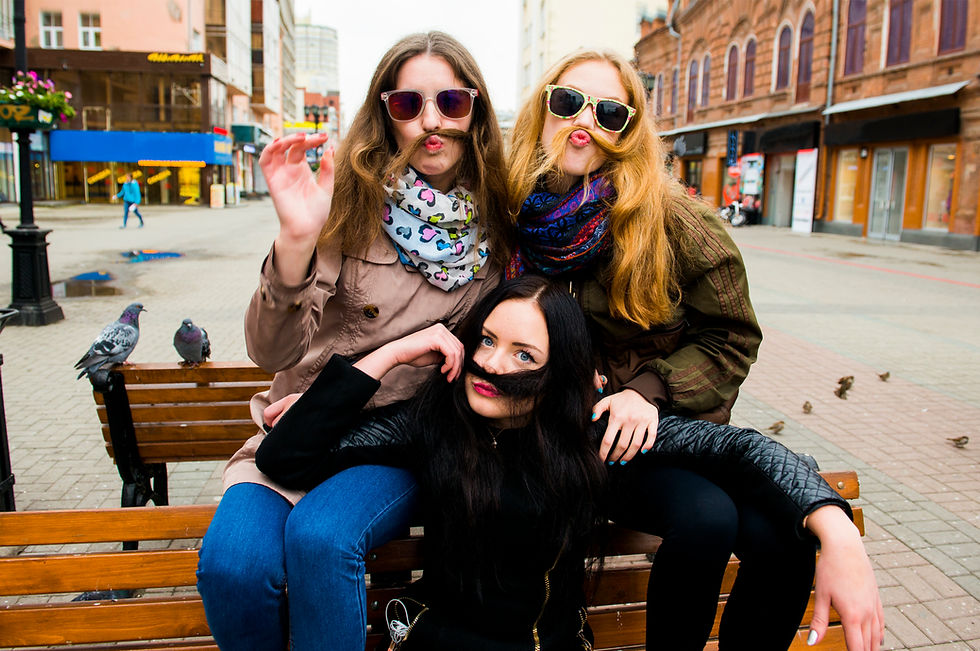Navigating Friendship as a Neurodivergent Adult
- Mema Mansouri

- Oct 12, 2025
- 3 min read
Updated: Nov 15, 2025

Friendship is often described as one of life’s great joys, a space for connection, belonging, and shared understanding. Yet for many neurodivergent adults, the path to meaningful friendship can feel more complex. Social norms, sensory sensitivities, communication styles, and the invisible labor of masking can all shape how we experience connection. But friendship doesn’t have to fit a neurotypical mold to be real, supportive, or deeply fulfilling.
Friendship Can Look Different, and That’s Okay
Many neurodivergent adults grow up feeling “different” in social spaces, perhaps preferring one-on-one conversations over group gatherings, needing downtime after social events, or valuing shared interests more than small talk. These differences aren’t deficits; they reflect unique nervous systems, communication patterns, and ways of relating.
For some, friendship might look like texting memes instead of meeting up weekly, or spending time together in comfortable silence. For others, it may mean connecting through shared projects, online communities, or structured activities rather than spontaneous hangouts. What matters most isn’t how a friendship looks from the outside, it’s how supported, seen, and accepted you feel within it.
Initiating Friendships with Intention
Starting new friendships can feel daunting, especially if past social experiences have been painful or confusing. A few strategies can help ease this process:
Lead with shared interests: Seek out spaces that align with your passions, such as book clubs, gaming groups, volunteer organizations, hobby workshops, or online communities. Shared focus reduces pressure for constant conversation and allows connection to grow naturally.
Practice gradual exposure: You don’t have to dive in right away. Start with short interactions or low-stakes online exchanges and build from there.
Name your needs upfront: It’s okay to be transparent about things like preferring structured plans or needing notice before socializing. Clarity helps friendships form on solid, mutual ground.
Maintaining Friendship for Neurodivergent Adults
Even the most positive friendships require energy, and for neurodivergent adults, managing that energy is key to avoiding burnout.
Schedule recovery time: Treat downtime as part of your social plan, not an afterthought. Post-connection decompression is restorative, not avoidant.
Communicate openly: Let trusted friends know that if you go quiet, it’s about recharging, not disinterest.
Find reciprocity in your way: Reciprocity doesn’t always mean equal contact; it means mutual care. That could look like alternating who initiates plans, exchanging thoughtful messages, or simply respecting each other’s rhythms.
Protecting Your Emotional Boundaries
Not every friendship is nourishing, and that can be a difficult truth to face.
Notice your body’s cues: Tightness, dread, or exhaustion after interactions may signal that a relationship drains more than it gives.
Set clear boundaries: It’s okay to say no, to leave group chats muted, or to end relationships that no longer align with your values or needs.
Seek communities of understanding: Surround yourself with people who celebrate your neurodivergence rather than tolerate it. Acceptance is a baseline, not a bonus.
Connection, on Your Terms
Friendship as a neurodivergent adult is not about fitting in, it’s about finding fit. When relationships are grounded in mutual respect and understanding, they become a space where you can show up as your full self, unmasked, authentic, and seen. Meaningful connection doesn’t have to look like everyone else’s version of friendship; it simply has to feel right for you.
Disclaimer: This blog is for educational purposes only, is not a substitute for mental‑health treatment, and does not establish a therapist–client relationship. If you need personalized support, please consult a licensed mental‑health professional in your area. If you are in crisis, call or text 988 (U.S.) or your local emergency number.



